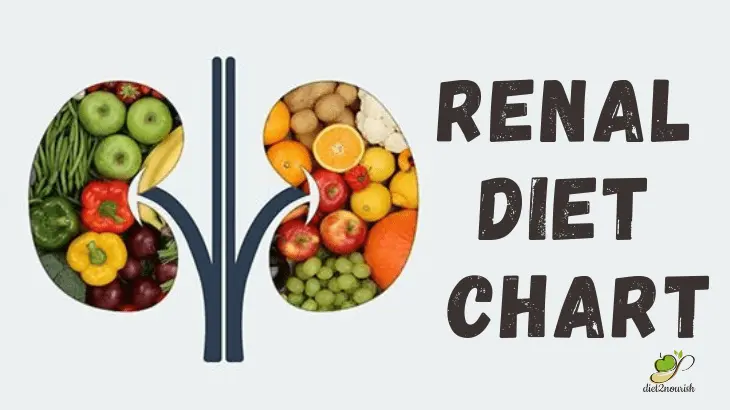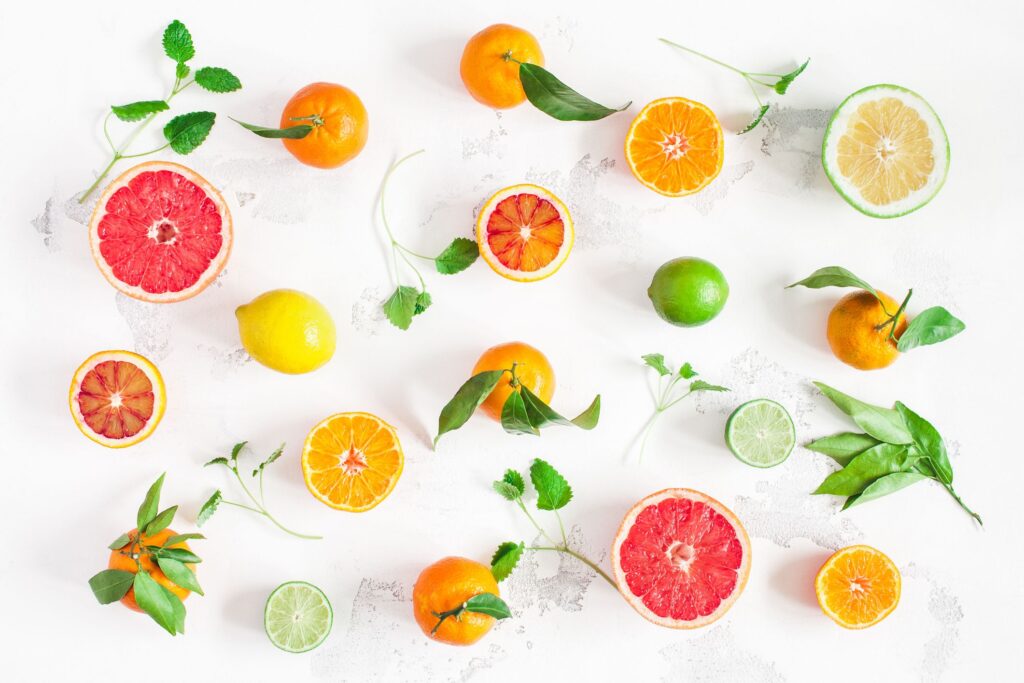Indian Diet Chart for Kidney Patients
If you’re a renal patient or an individual who is looking for information on the Indian Diet Chart for the kidney Patients, then you have bumped into the right place. This article will give you the best information which you have been looking for due to certain unhealthy lifestyles such as fast food, pizza, instant seasonings, etc. Our body carries all the burden of digesting, distributing the food, segregating the nutritional contents to all parts of our body. Hence our kidney gets affected and renal functions get disturbed. By following the Renal diet chart one can get the right solution.
What is a Renal Diet?
Well it is a diet for the betterment of kidneys. This is a special diet for people who have kidney issues. The diet plan depends on the level of damage a kidney has. Generally, the diet includes sodium, potassium, phosphorus, protein, and fluid that a person ingests. Renal is the fancy name for a kidney. However, another name neph is also used for a kidney. This can explain the meaning of a renal diet. A healthy renal diet will help you fight kidney issues.
Ckd diet chart is a diet rich in healthy foods. Such foods are good for the kidneys. Patients with kidney issues need to get an Indian diet chart for kidney patients .
Ckd diet chart should be as per the patient’s kidney conditions.
- Patients can take green/herbal tea.
- Renal Patients can consume lukewarm water with basil (Tusli) leaves.
- Black tea
- Ajwain tea
Foods to Avoid with Kidney Disease
Consumption of tea and coffee is prohibited for renal patients except for green/herbal tea. It can make the blood acidic. Do not consume green tea before or after a meal. Patients are allowed to take this tea between the gap of half an hour.
Fruits to Take in kidney patients diet
- Apple
- Guava
- Papaya
- Peach
Fruits to Avoid
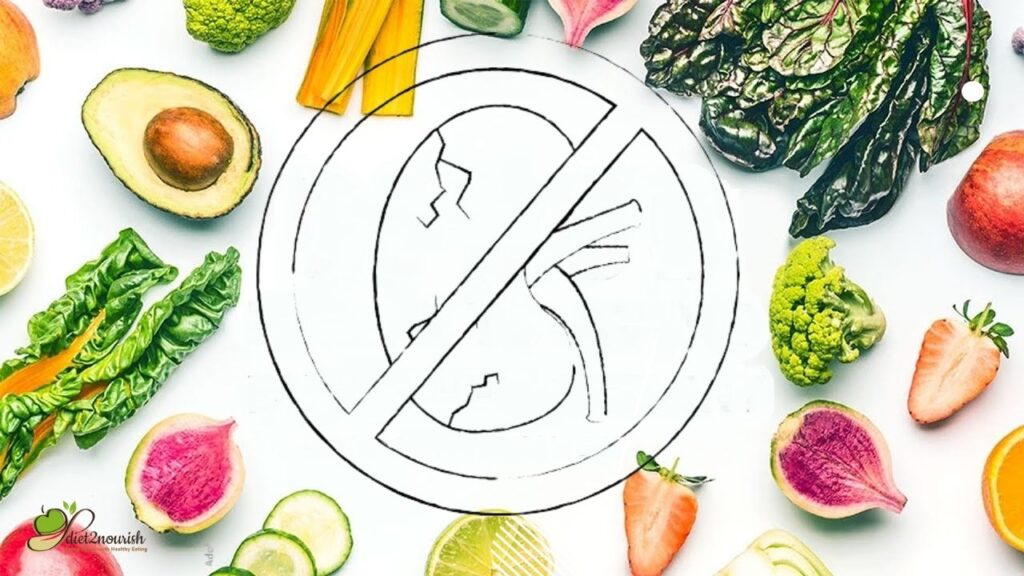
- Banana
- Kiwi
- Avocado
- Dates
Things to avoid
Avoid fruit juice, accept apple juice as it is low in potassium
Vegetables Good for Kidney patient diet
Low Potassium Leafy Vegetables
- Snake Gourd
- Bitter Gourd
- Bottle Gourd
- Round Gourd
Low Potassium healthy Vegetables
- Brinjal
- Ladyfinger
- Radish
- Cucumber
Foods to eat in the Nephro Diet
- dhulli dall-pulses
- cereals such as wheat flour, rice, rice flakes, suji, oats
- fat-according to need- olive, mustard, desi ghee
- salt-5-4gm/day
Foods to avoid in the Nephro Diet
- processed cheeses
- high-sodium meats (bologna, ham, bacon, sausage, hot dogs)
- frozen dinners and entrées
- canned meats
- pickled vegetables
- salted potato chips, popcorn, and nuts
- salted bread
- nuts
- vegetables-broccoli, beans, sweet potato, raw tomato, tamarind, lotus stem, bitter gourd
- fast food
- alcohol, smoking, salted biscuit, amchur
- extra milk
- namkeen dal-moth, salted biscuit, extra table salt
Foods healthy for Kidneys Patients
● Olive oil
It is very healthy for people with kidney disease. You can use it for fat free cooking.
● Cabbage
It comes from the family of cruciferous vegetables. It is a wonderful veggie that can change your life. Eat it for good kidneys and fast Results.
● Bell peppers
They consist of nutrients that are low in potassium. These brightly coloured peppers are full of powerful antioxidant vitamin C.
● Onions
They are very good for providing sodium-free flavour to renal-diet dishes. Minimising salt intake should solve kidney issues.
● Radishes
These are tasty and crunchy vegetables. This makes a healthy diet for a renal diet. It is low in potassium and phosphorus but high in many other important nutrients.
● pineapple
They make a sweet, low potassium choice for kidney problems. Also, pineapple has healthy enzymes in it. This will help to reduce inflammation.
Indian diet charts for kidney patients will provide the best solution to renal patients.
● papaya
Papaya is a magic fruit for kidneys. Its contents will heal your organs. This will also cure uric acid in the blood. Papaya seeds also play a vital role in keeping the kidney healthy
● pomegranate
This fruit and its juice, both will help you. Drinking pomegranate juice will bring improvements in lipid and cholesterol levels. It will also help your organs.
● mango
You should eat raw mangoes for the best perks. They are high in antioxidants. This will help to flush out toxins from the body. Raw mango protects the body and makes you healthy.
Things to remember in the Nephro Diet
- Be careful of protein intake. The recommended protein intake for nephrotic syndrome is 1 gram (g) per kilogram of body weight per day= 0.45 per pound per day.
- Limit sodium intake to 400 milligrams (mg) per meal (150 mg per snack.
- Limit using seasonings with salt. You must avoid garlic salt, and substitute it with fresh garlic or garlic powder.
- Eat homemade food.
- Cook food with olive or coconut oil.
- Avoid taking salt
- Choose fresh vegetables or canned vegetables with no added sodium
- Eat the foods that are healthy for kidney patients.
Low potassium foods for kidney patients
are necessary to manage their health of the patients. Root vegetables, such as beets and beet greens, taro, parsnips, and potatoes, yams, and sweet potatoes(boiled), bananas, spinach, avocado, prunes and prune juice, raisins, dates, sun-dried or pureed tomatoes, or tomato paste are the best foods that will lower your potassium level.
Low protein food list for kidney disease
Though proteins are critical for our health, for some reducing their intake works as a therapeutic remedy against certain conditions. A low protein diet is often recommended to treat many health conditions like abnormal or impaired liver functions, kidney diseases, and disorders related to protein metabolism.
Low protein food list for kidney diseases include:
Grains :
Oats, rice, pasta, bread.
Vegetables:
Zucchini, broccoli, peppers, leafy greens.
Fruits :
Bananas, pears, peaches, apples,
Fats :
Olive oil, coconut oil, and avocados.
High potassium foods to avoid
The kidneys work to clean the blood of wastes. It throws them out with the excess fluids. This function of the kidneys helps prevent buildup of wastes. It also makes sure to have an electrolyte balance in the body.
But people with kidney diseases have weaker kidney functions. Thus, they are unable to deal with potassium efficiently. It can lead to dangerous levels and cause nausea. This can lead to fatigue, chest pains, difficulty in breathing, and much more. To keep the their levels under check, you should know the high potassium foods to avoid with kidney disease, and these are:
- Bananas
- avocados
- raisins
- prunes
- oranges
- tomatoes
- lentils
- spinach
- Brussels sprouts
- split peas
- potatoes both regular and sweet
- pumpkin
- dried apricots
- milk
- bran products
- low-sodium cheese
- nuts
- chicken
Food to improve kidney function
To get healthy kidneys, your meal plans must have these foods to improve their function:
Skinless chicken:
Skinless chicken is just high-end protein. Your kidneys need such foods in your diet. So do not miss out!
Cauliflower:
They are filled with vitamin C, K, and B. These fat free veggies are good for kidneys in a lot of ways.
Cabbage:
Similar to cauliflower, cabbages are low in phosphorus, potassium, and sodium too.
Best juice for kidney disease
Although juices are not often recommended for kidney diseases as whole fruits solve the purpose, if you love to have juices and have kidney problems, the best juices for kidney disease are:
Apple juice
Peach juice
Make sure these juices are extracted fresh and have no added sugar. Though these juices are naturally sweet.
Avoid Food for kidney
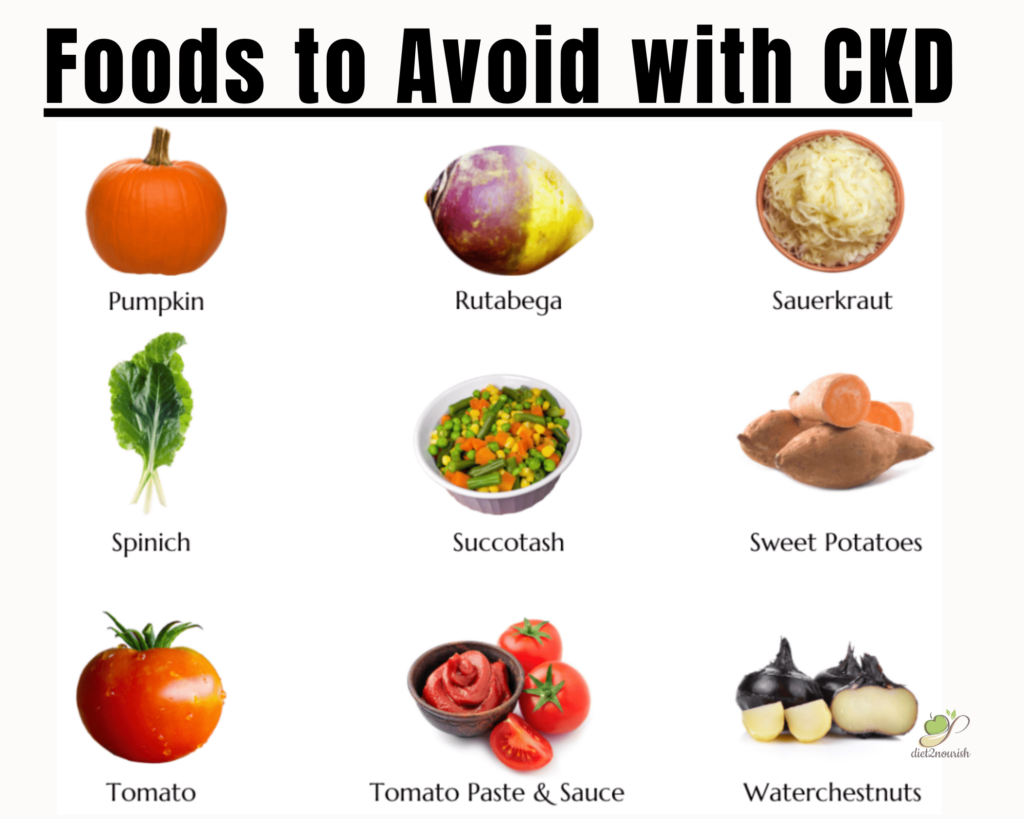
Avoiding some foods in the diet can help the kidneys improve their function. It will also keep a check on the waste in the body. So, avoid these foods:
1. Avocados:
They are otherwise good, but have high potassium.
2. Bananas:
Another fruit rich in potassium, and needs to be avoided for the health of the kidneys.
3. Canned foods:
These foods are high in sodium. Thus, they are not good for the kidneys.
4. Processed meats:
high in salt and proteins, processed meats should be avoided if you have renal issues.
5. Dairy foods:
These foods have a lot of proteins, phosphorus and potassium. Do not eat them.
6. Brown rice:
is high in potassium and phosphorous. Should be consumed in limitation while on a kidney diet.
7. Apricots :
are high potassium foods that should be avoided on a renal diet.
8. Green leafy vegetables:
Greens have a lot of potassium in them. So, watch out for them if you want well functioning kidneys.
Crucial components for a kidney diet chart
Sodium
In salt sodium is found and it’s used for common seasoning. Kidney patients are restrained to consume high amounts of sodium. By consuming high amounts of salt salt can increase your thirst, blood pressure levels, and as a fact swelling in the legs, hands and face. Consume very little amount of salt, that will help to manage blood pressure levels, muscle contraction and nerve function.
choose fresh fruits and vegetables, and don’t consume packaged meats.
Potassium
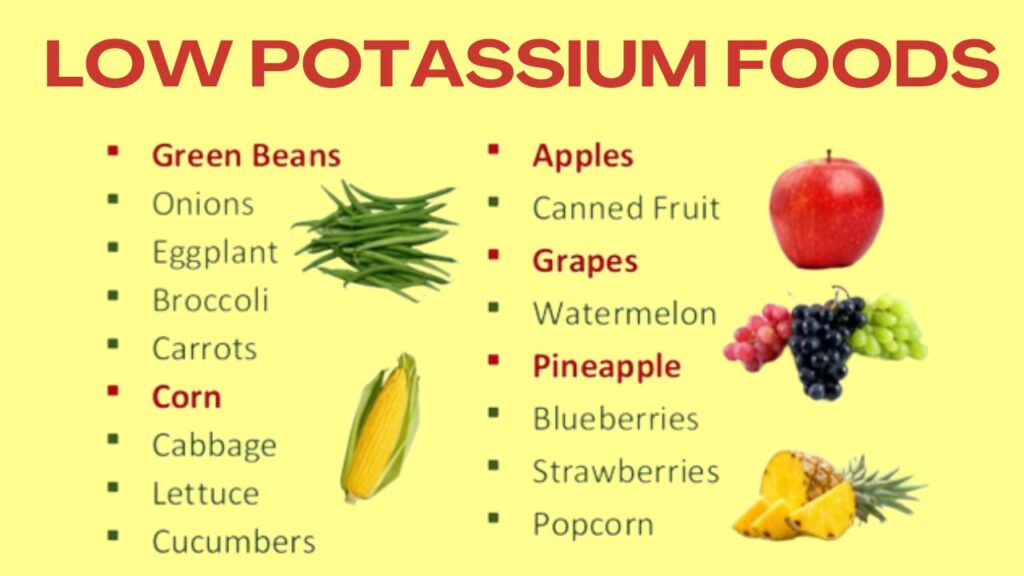
Potassium is a mineral and it is present in the body naturally. Several food items have potassium.Potassium is vital for muscle function and regulating heartbeat. It will improve fluid and electrolyte balance in the blood.It is essential for kidney patients to balance their potassium consumption. Because consumption of high amounts of potassium can lead to muscle weakness, slow pulse irregular heartbeat.
You should Limit the consumption of foods high in potassium. You should choose fresh fruits and vegetables, and avoid salt intake.
Phosphorus
Phosphorus is vital for bone development and strength. It helps to maintain muscle function and the development of connective tissue. Kidney patients’ ability to filter might be decreased because of kidney issues. However, when the kidney will not function properly, then you will tend to take high amounts of phosphorus. This can pull extra calcium from your bones and it may deposit in the blood vessels.
Choose foods that are low in phosphorus, don’t take packaged foods, and eat foods with high proteins in smaller portions.
Protein
Kidney patients’ bodies can not filter protein from food. As a result it will accumulate in the blood. It is always important to balance your protein intake, if you are a kidney patient.
Check food labels, avoid eating processed foods and maintain a food chart.
Fluids
Fluids are very good for hydration in the body. If you are a kidney patient you need to have a balance in your fluid intake. So that the dialysis will completely filter the waste from your body. Don’t consume a high amount of fluid. This will increase the pressure on your lungs and heart. It is essential to manage your fluid consumption on the basis of your urine and dialysis setting.
Avoid drinking high amounts of fluids and be smart to use the amount of water while cooking food.
Frequently Asked Questions (FAQs)
1. How can I improve my kidney function fast?
2. What snacks are good for kidney disease?
Low-sodium crackers
pita chips
unsalted pretzels.
Bread stick
Rice cakes
3. what fruit is good for kidneys ?
Guava
Pear
Apple
Papaya
4. Worst beverage to take while following a CKD?
Drinks that have a lot of sugar or sodium are big red flags. So, avoid
Soda
cold drinks
alcohol
sports and energy drinks.
5. Can a CKD diet be personalised as per my needs?
Yes, it is possible. A registered dietitian can help you. They will make you a special plan. It will be as per your needs.
6. How much water should I consume while being on a CKD diet?
The amount of water you should consume on a chronic kidney disease diet depends on your own needs. Your medical history also plays a role. You should drink at least 4 litres of water everyday.

